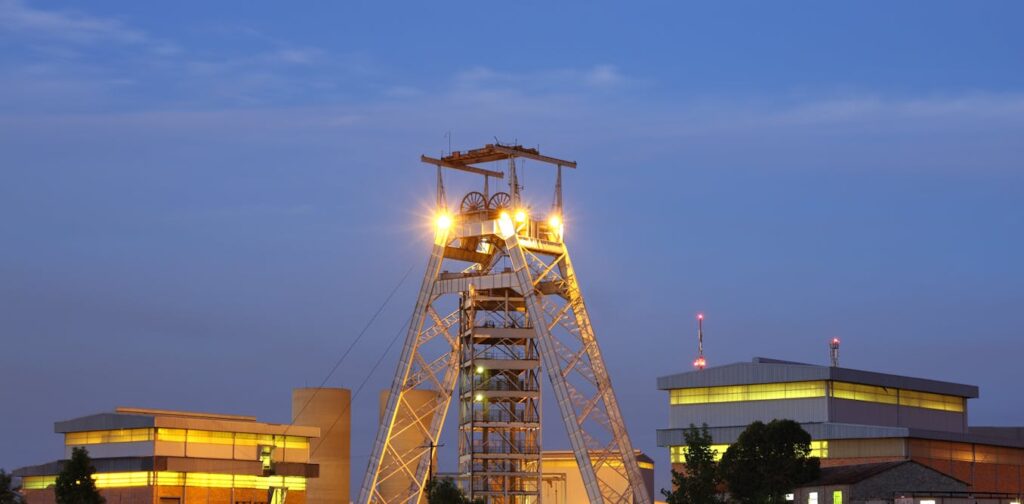South Africa’s Mineral Wealth and the Future of Energy: A Nation at the Crossroads
South Africa, a land rich in history and abundant in natural resources, holds some of the world’s largest reserves of coal, gold, manganese, and platinum. However, the contemporary significance of its mineral wealth, especially the so-called “critical” minerals and metals essential for the global energy transition, is drawing renewed attention.
Despite ongoing debates around which minerals can be termed critical, they are generally understood to be those natural resources indispensable for the shift from fossil fuels to renewable energy sources. Central to this transition are technologies that rely heavily on specific mineral and metal inputs.
Among South Africa’s critical minerals and metals are cobalt, nickel, copper, lithium, and rare earth elements. Notably, the nation possesses one of the continent’s most extensive graphite reserves. A World Bank report from 2020 projected that the demand for cobalt, lithium, and graphite would surge by approximately 500% between 2018 and 2050, underscoring their impending strategic importance.
Globally, the Democratic Republic of Congo (DRC) stands out as the preeminent producer of cobalt, while Zimbabwe ranks among the world’s leading lithium producers. As South Africa navigates its economic landscape, the mining sector, despite a decline in its contribution, remains a pivotal economic pillar. It employs over 400,000 individuals and draws significant foreign direct investment, contributing over 6% to the nation’s GDP and amassing substantial revenues in company taxes and royalties.
Since the advent of democracy in 1994, South Africa has grappled with the equitable distribution of benefits derived from its natural resources. Political entities such as the African National Congress (ANC) and the Economic Freedom Fighters (EFF) have each proposed various approaches through their election manifestos to address this challenge. Yet, the voices of ordinary citizens have often been absent in discussions around the governance of South Africa’s extractive industries.
A recent survey conducted by the Afrobarometer Research Network, coupled with broader research on socio-economic development, political institutions, resource governance, and energy politics in Africa, seeks to bridge this gap. The Afrobarometer survey reveals that a majority of South Africans advocate for increased government regulation of mining activities. Notably, 61% agree on the need for stricter regulations to mitigate environmental impacts, though opinions diverge on other facets of natural resource extraction. For example, only 41% of respondents felt that ordinary South Africans had a decisive voice in decisions regarding resource extraction near their communities.
The dissatisfaction extends to the perceived sharing of revenues from resource extraction, with 69% of citizens expressing discontent or indifference, and only a paltry 31% believing that local communities receive a fair share. Furthermore, merely 39% of citizens acknowledge that the benefits of resource extraction, such as job creation and revenue generation, outweigh its costs, such as pollution.
The mixed sentiments of the populace can be traced back to the mining industry’s complex history. While it has undeniably contributed to the development of several African nations, it has also been marred by the exploitation of cheap black labor and numerous human rights abuses, including child labor and human trafficking, particularly in cobalt mining. Environmental issues, such as water pollution and crop contamination, further complicate the sector’s legacy.
Opinions on government regulation of mining activities also vary markedly across political party lines. Analysis of Afrobarometer data indicates that 75% of likely EFF voters advocate for more stringent regulation—significantly higher than supporters of the ANC or the Democratic Alliance (DA), reflecting each party’s economic and ideological stance. The EFF and the uMkhonto we Sizwe party call for state ownership of mineral resources, whereas the ANC seeks a balance between state intervention and private sector participation. Meanwhile, the DA aims to reduce state control to attract private investment.
The survey’s findings highlight a troubling trend: a considerable portion of the population remains either indifferent or uninformed about the extractive industries. This knowledge gap poses substantial challenges for accountability and governance, particularly pertinent as the sector’s role in the pending energy transition becomes increasingly paramount.
As South Africa stands on the cusp of significant changes driven by the energy transition, ensuring that its natural wealth translates into inclusive and sustainable growth remains a critical endeavor.
